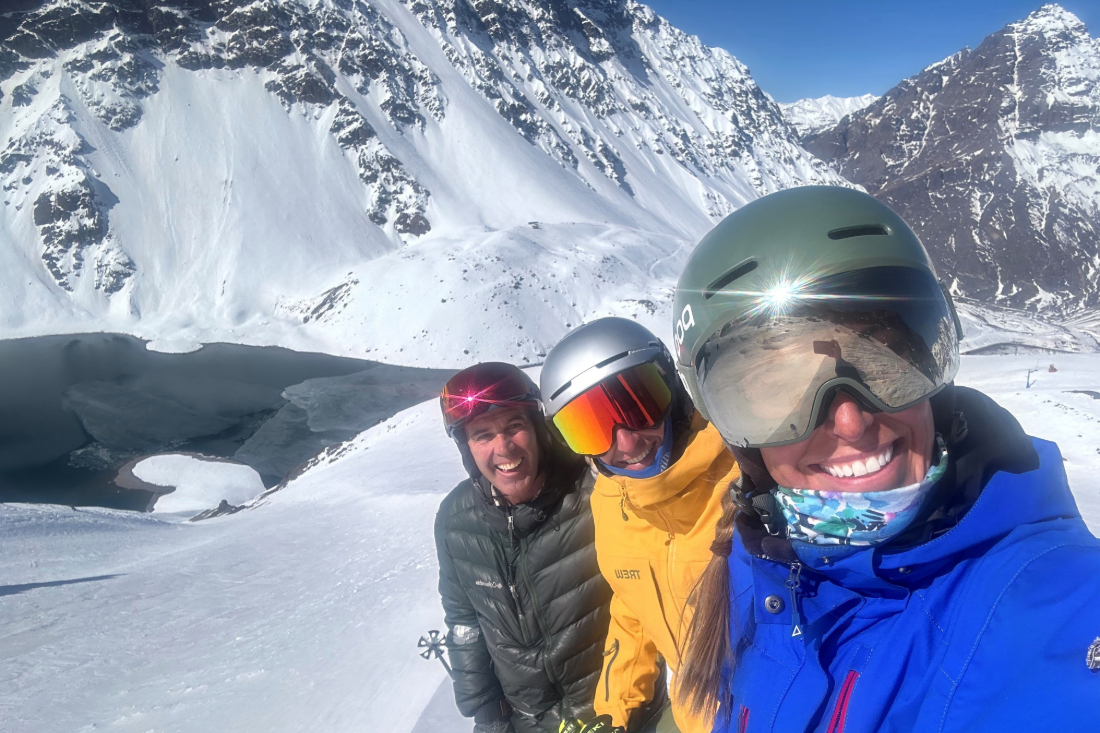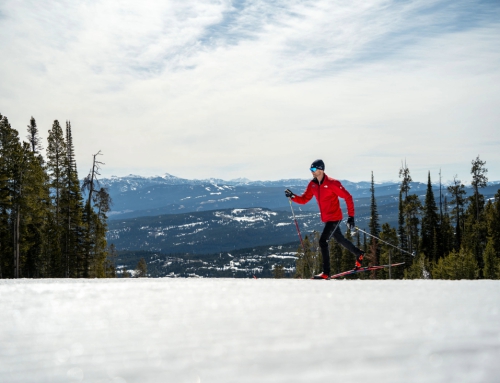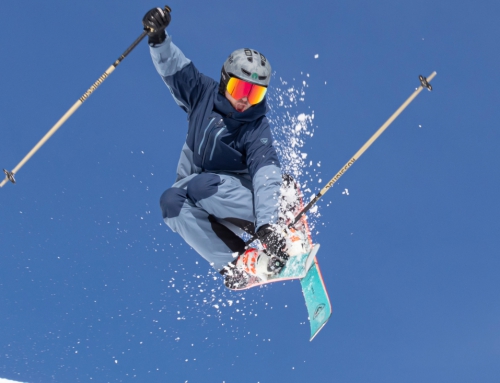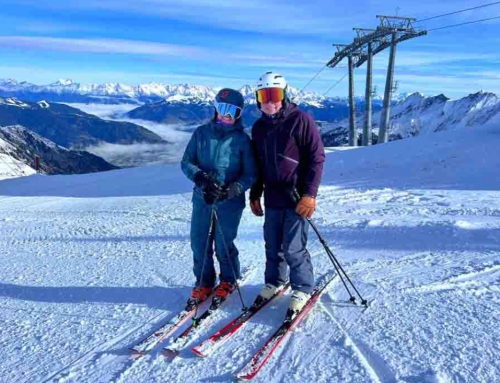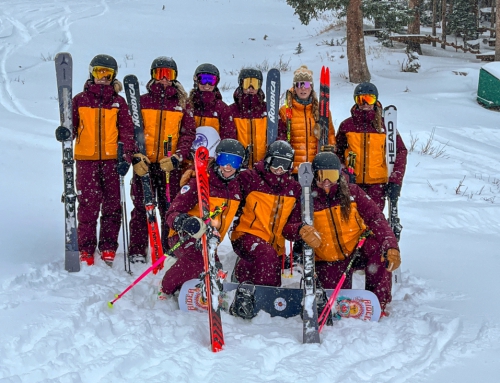Building Camaraderie in Portillo: Michael Rogan, Troy Walsh, and Katie White Prepare for the 2024-25 Season, Part 2
Returning PSIA Alpine Team member Troy Walsh took a midsummer trip to Portillo, Chile, this July, to ski with PSIA Alpine Team Technical Coach Michael Rogan and new Alpine Team member Katie White, where Michael is director of operations and Katie is director of the ski school at Ski Portillo. Read Part 1 here.
Q: When the three of you knew you were going to be skiing together in Portillo, what were some of the plans you wanted to get going?
A: Michael Rogan: We’ve always known that time together is extremely precious and hard to come by. It’s rewarding to ride, share lifts, and talk about goals for the national team.
A: Katie White: In the tryout experience, I’ve never been in a group with Troy. But now we’ve had quite a few meals together and chair rides, so it’s been cool. Troy’s been sharing a lot about what it’s like to be a teammate, and it’s been valuable for me to get this time with him.
A: Troy Walsh: If you do the math, we really only get to see the entire team five days in the fall and then five days in the spring. And it goes fast. You get to the end of the term and there are teammates you’ve only seen 30 times. So as Katie said, getting to see each other’s faces and spend some time together is so valuable.
Q: Michael, because there is always a mix of returning members and new members – as well as a carryover of ideas and initiatives – what is the process of building each new team?
A: Well, the goal isn’t to start fresh. There’s obviously carryover from one team to the next, which is great. We’re not starting from ground zero and things have been perpetuated that this next group can pick up where the prior group left off and carry on that legacy and build upon it. Of course, when it comes to those ideas, some are at the end of the cycle, some are at the beginning, and some are in the middle. So this team will certainly be informed by the legacy of the previous teams, but they’re also going to have the opportunity to start something and really take it to completion on their own terms.
If you’re looking for an example, our skiing fundamentals have had the longest lifespan, so we have to look at the application of what does it really mean to apply some of our fundamentals in different situations? For example, how do they look different on a groomed run compared to a mogul run, or whatever example or situation you can come up with where they come to life?
Q: Troy, what’s the momentum that you guys have right now, which, even as you change a team, you really want to keep building on?
A: There’s such an enthusiasm for the learning side of things. It’s what I was thinking about a fair amount today. How we’re the subject matter experts, and we have to take that leadership role where we’re delivering good clinics and information. But when we get together, it’s almost like we all drop that. And instead of being the experts, we’re all changing over to learning – about each other and other topics. It’s interesting because we can quickly go from leader to learner, listening and processing new things.
Also, we have an extra year this year. Last time we only had three years. We showed up and it was, “That’s your group, get to know them. This is what you’re going to do.” There was so much happening in a short period of time. I’m assuming this year we’ll get a little bit softer start on the idea of what we want to present at Interski because it’s going to be a big one at Vail, and we still have time to be able to get to know each other. So how we switch back and forth from learning and leading is a good kick off for us right now.
Q: Katie, in trying out for and making the team, what’s one of the things you really want to contribute?
A: I’ve been thinking about this a lot, and even more in my role right now as a ski school director here in Chile. I’ve been focusing a lot more on developing the next group of people and really working on creating leaders within my school here – with people from all over the world who can be leaders in our industry. But when I come back to the States, I definitely think that’ll be my focus, really starting to bring people up along the pipeline with me. That has been a change in my thought process since I made the team – how to get people interested in trying out for the team and being a leader and mentor to other people.

